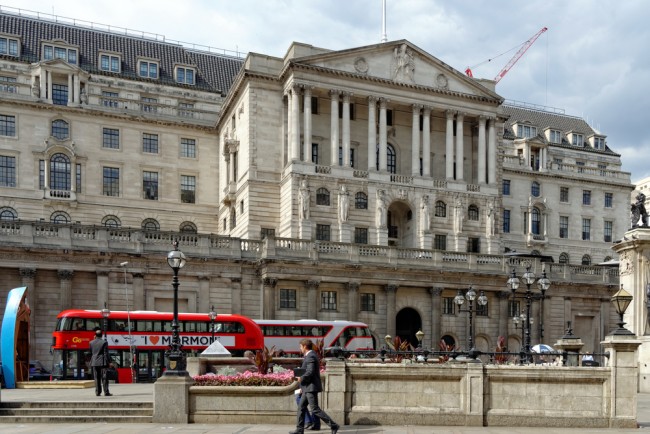The Bank of England has signalled that weaker UK growth and an “unforgiving” global environment will keep interest rates on hold for at least another year, as its most hawkish member abandoned a call for higher rates, reports The Telegraph.
Policymakers cut their forecasts for growth, inflation and wages as Governor Mark Carney said “sustained financial market turbulence” triggered by jitters over global growth meant a cautious stance was warranted.
All nine members of the Bank’s Monetary Policy Committee (MPC) decided to keep rates at 0.5 per cent this month. Ian McCafferty, an external member, ended his call for a 0.25 percentage point hike following six months of dissent.
While the Bank’s quarterly Inflation Report appeared to validate expectations that rates would remain on hold until next year, the dovish report saw markets push back their expectations for an interest rate hike as far as August 2018, while some economists now believe there will be no rate hikes this decade.
Just last month, markets still believed rates would rise in October this year.
The Bank said “muted growth in world prices” driven by a further fall in commodity costs meant there was the risk of a “greater persistence of low inflation” in the near term.
“Global growth has slowed again over the past few months, as emerging economies decelerated further and the US economy grew less than expected,” said Mr Carney.
“Wage growth has been weaker than anticipated and labour costs are expected to rise a little less quickly than thought [in] November, contributing to a slower recovery in inflation,” the report added.
The UK economy is now expected to grow by 2.2pc this year, from a projection of 2.5 per cent in November. Growth in 2017 is expected to be 2.4 per cent, from a previous forecast of 2.7 per cent.
The downgrades prompted George Osborne to warn that a weaker outlook for nominal growth could “present challenges for tax receipts in the future” as well as the Chancellor’s ambition to balance the books before the end of the decade.
“As one of the most open economies in the world, the UK cannot help but be affected by an unforgiving global environment and sustained financial market turbulence,” he said.
However, the Governor highlighted that the UK economy remained robust, despite concerns about the global economy. “Our prospects for a continued solid expansion are underpinned by the resilience built over the past seven years,” he said.
The MPC also appeared to quash talk of a rate cut in the near term, repeating a message that keeping inflation at target would require tighter policy over the next three years.
The further drop in oil prices means inflation, as measured by the consumer prices index (CPI), is expected to remain below 1pc until the end of the year.
The Bank expects electricity and gas bills to come down further in the coming months, with the impact of lower energy prices likely to exert a drag on inflation until “late 2018”.
Average weekly earnings are expected to climb 3pc this year, from a previous projection of 3.75 per cent, although pay is expected to continue to strengthen as the labour market tightens.
The minutes of February’s interest rate meeting showed Mr McCafferty, who has previously argued that rates should rise sooner to ensure they are gradual, believed the “prolonged period of low inflation suggested that the pick-up in the pace of wage growth would be initially more muted than previously expected.
“With the upside risks to inflation therefore likely to emerge somewhat later, an immediate tightening in monetary policy was no longer necessary.”
However, Mr Carney cautioned against placing too much emphasis on weaker wage growth as he urged Britain’s “still relatively indebted” households to prepare for tighter policy now to avoid getting “shocked” when rates do rise.


